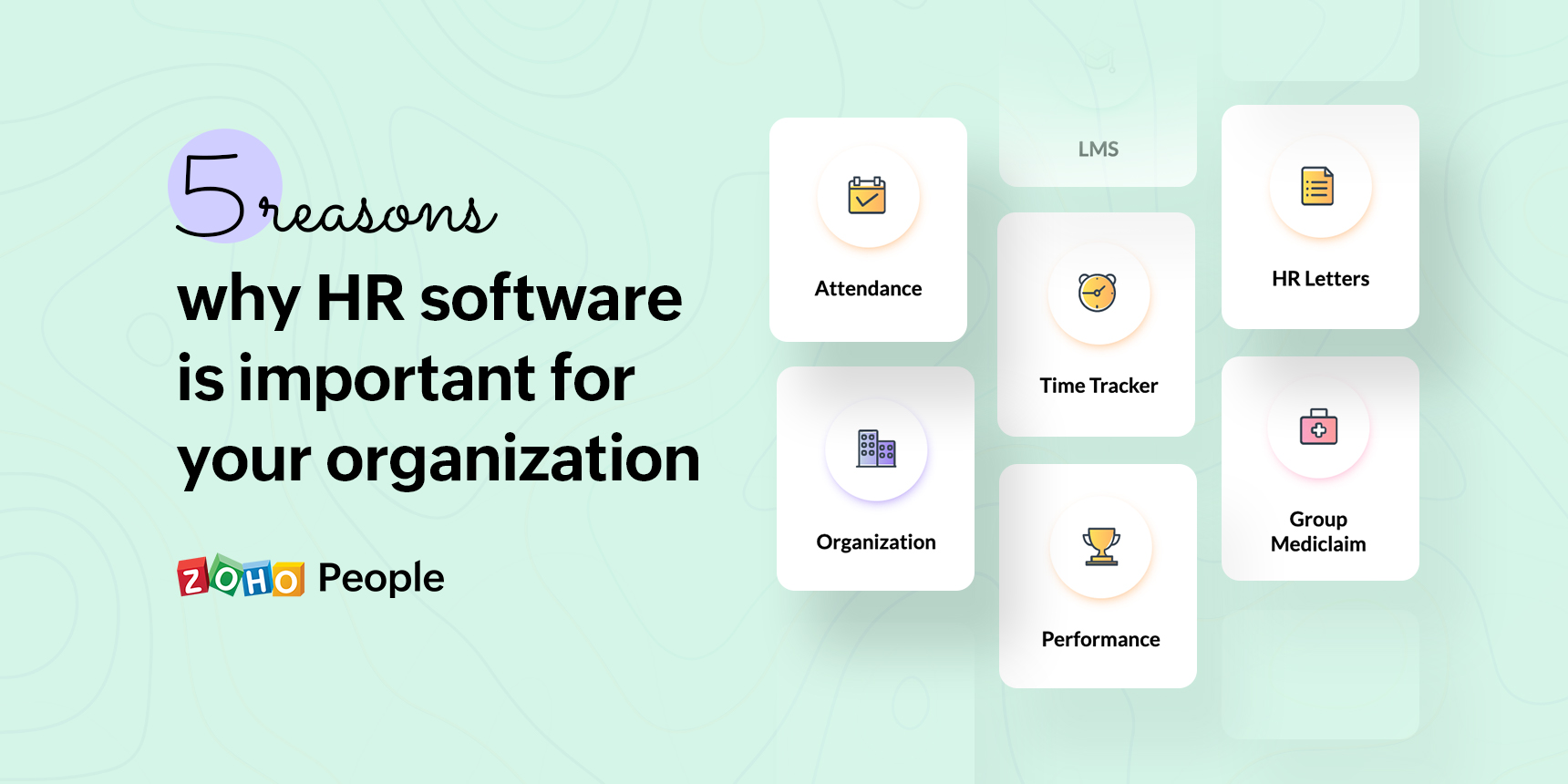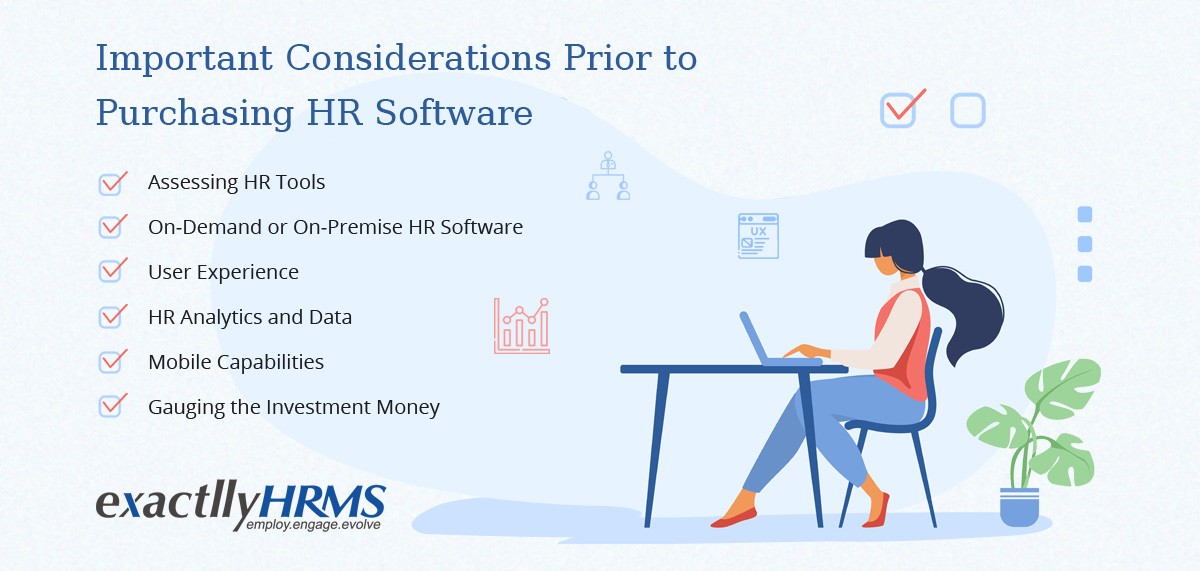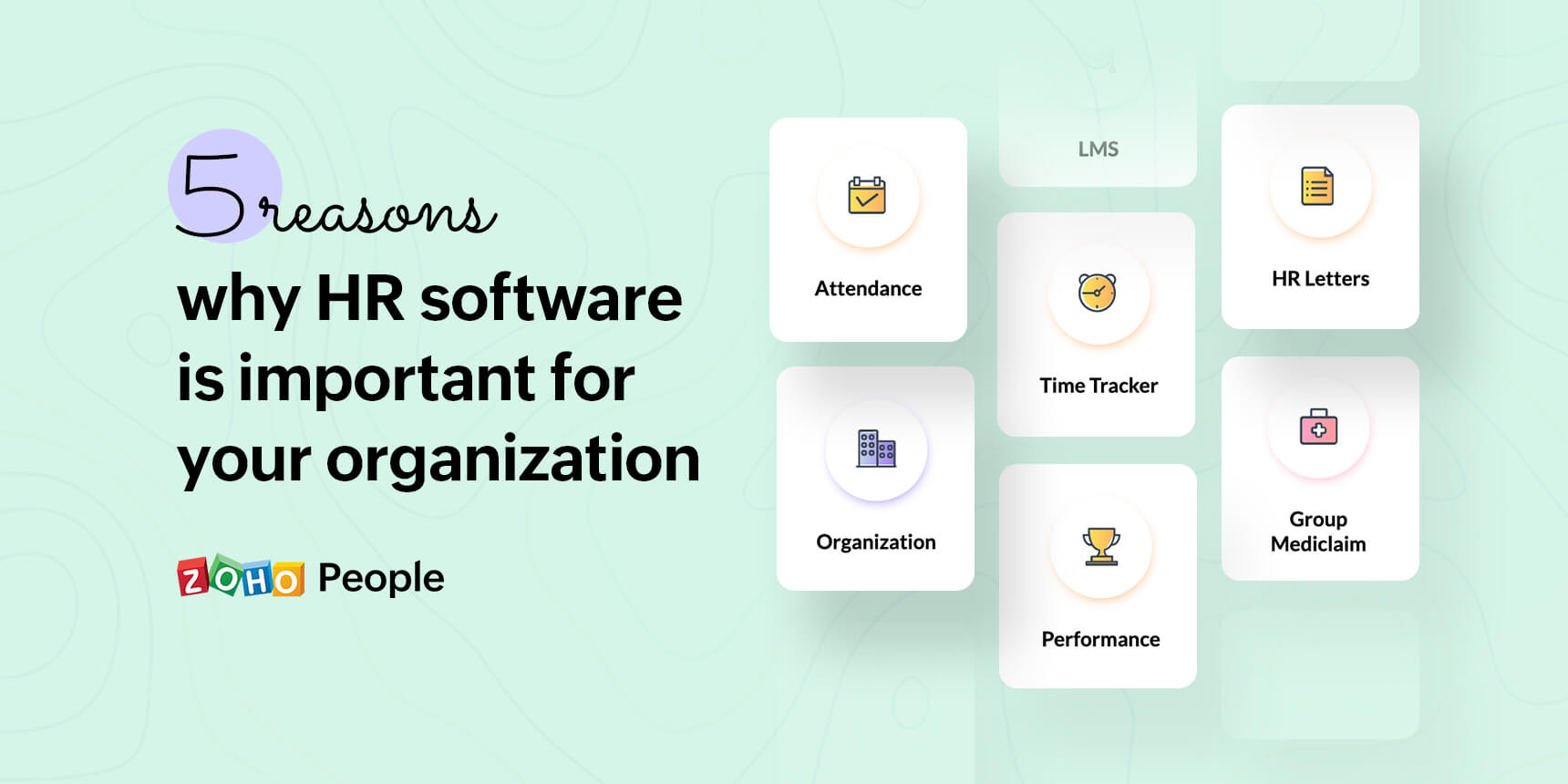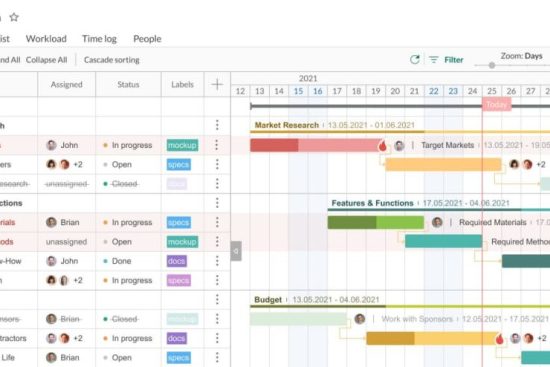
HR software is crucial for modern businesses. It streamlines many processes, making work easier.
In today’s fast-paced work environment, managing HR tasks manually can be overwhelming. HR software provides a solution by automating repetitive tasks. This saves time and reduces errors. It also helps in better organizing employee data, ensuring compliance with labor laws, and improving communication within the company.
With HR software, businesses can focus more on strategic goals rather than administrative duties. It supports the overall efficiency and productivity of the organization. Understanding the importance of HR software can lead to better decision-making and a more organized workplace.
Introduction To Hr Software
In today’s fast-paced business world, managing human resources efficiently is crucial. HR software helps streamline HR tasks, making them more manageable and effective. This software supports various HR functions, from recruitment to payroll management.
By integrating HR software, businesses can save time and reduce errors. It helps HR teams focus on strategic tasks rather than getting bogged down by administrative duties. Understanding what HR software is and its evolution can help you see its importance.
What Is Hr Software?
HR software is a digital solution for managing human resources activities. It includes tools for recruitment, employee records, performance management, and payroll. This software simplifies complex HR tasks, ensuring accuracy and efficiency.
It helps HR teams track employee data, manage benefits, and ensure compliance with labor laws. HR software also offers analytics to make informed decisions. In short, it centralizes HR functions, making them easier to handle.
Evolution Of Hr Tools
HR tools have evolved significantly over the years. Initially, HR tasks were manual and time-consuming. HR professionals used paper files and spreadsheets to manage employee data.
With technology, HR tools became more sophisticated. Early HR software focused on basic tasks like payroll and attendance. Modern HR software now includes advanced features like employee self-service and mobile access.
Cloud-based HR software allows access from anywhere, at any time. This evolution has made HR management more efficient and effective, benefiting businesses of all sizes.
Streamlining Hr Processes
Human Resources (HR) software helps businesses streamline their HR processes. This makes managing employees easier and more efficient. With the right software, HR tasks become less time-consuming. This allows HR professionals to focus on more strategic activities. Below, we explore how HR software streamlines different HR processes.
Automating Administrative Tasks
HR software automates many administrative tasks. This includes tracking employee data, managing benefits, and monitoring attendance. Automation reduces errors and saves time. HR professionals no longer need to manually input data. They can rely on the software to handle these tasks.
- Employee data management
- Benefit administration
- Attendance tracking
Simplifying Payroll Management
Payroll management can be complex. HR software simplifies this process. It calculates salaries, taxes, and deductions automatically. This ensures employees are paid accurately and on time. The software also helps with compliance. It keeps track of labor laws and regulations.
| Feature | Benefit |
|---|---|
| Automatic salary calculations | Reduces errors |
| Tax management | Ensures compliance |
| Deduction tracking | Saves time |
HR software also provides detailed payroll reports. These reports help businesses make informed decisions. They offer insights into employee costs and payroll trends.
Enhancing Employee Experience
Enhancing employee experience is crucial for any organization. It directly impacts engagement and productivity. HR software plays a key role in creating a positive work environment. It streamlines processes and provides tools that make employees’ lives easier. This section will explore how HR software enhances employee experience.
Self-service Portals
Self-service portals empower employees. They can access their information anytime. This includes pay slips, leave balances, and personal details. No more waiting for HR responses. It saves time and boosts efficiency.
Employees feel more in control. They can update their details as needed. This reduces errors and improves accuracy. Self-service portals also support transparency. Employees can track their requests and see updates in real-time.
Improving Communication
HR software improves communication within the organization. It offers various tools for messaging and notifications. Employees receive important updates instantly. No more missed memos or emails.
It also provides a platform for feedback. Employees can share their thoughts easily. This fosters a culture of openness. Regular communication keeps everyone informed. It aligns the team with company goals.
Effective communication enhances collaboration. Teams can work together smoothly. HR software ensures everyone stays connected and informed.
Data-driven Decision Making
Data-driven decision making is crucial for modern HR departments. HR software helps organizations harness the power of data. This technology transforms raw data into meaningful insights. Companies can then make informed decisions based on these insights.
Centralized Data Management
HR software centralizes all employee data in one place. This eliminates the need for multiple spreadsheets and files. Managers can access data quickly and easily. Centralized data ensures consistency and accuracy. It also reduces the risk of data loss.
Advanced Reporting & Analytics
HR software offers advanced reporting and analytics tools. These tools help in analyzing workforce trends and patterns. Managers can create custom reports to meet specific needs. These insights guide strategic planning and policy making. Predictive analytics can also forecast future trends.
Compliance And Risk Management
Compliance and Risk Management are crucial for any organization. Properly managing these aspects ensures that a company operates within legal frameworks and mitigates risks. HR software plays a pivotal role in this. It automates and streamlines tasks, making it easier to stay compliant and manage risks effectively.
Ensuring Legal Compliance
HR software helps organizations adhere to labor laws and regulations. It keeps track of employee records, ensuring that all documentation is up-to-date and accurate. This is essential for audits and inspections. Automated reminders for compliance deadlines and mandatory training ensure nothing is overlooked. This reduces the risk of legal penalties.
Reducing Human Error
Manual data entry can lead to errors. These errors can be costly. HR software automates many of these processes. This reduces the chances of mistakes. For instance, calculating payroll manually can lead to errors, but HR software ensures accurate computations every time.
HR software also offers reporting features. These reports help identify areas of risk before they become problems. This proactive approach enhances overall risk management. For example, tracking employee certifications and ensuring they are current helps avoid compliance issues.
| Manual Process | HR Software Solution |
|---|---|
| Manual data entry | Automated data collection |
| Tracking compliance dates manually | Automated compliance reminders |
| Manual payroll calculations | Automated payroll processing |

Credit: www.exactlly.com
Boosting Recruitment Efficiency
Boosting recruitment efficiency is crucial for any growing business. HR software plays a key role in this process. It helps manage tasks and reduces the time needed to hire new employees. This allows HR teams to focus on finding the best talent. Let’s explore how HR software boosts recruitment efficiency.
Streamlined Applicant Tracking
Managing many applications can be overwhelming. HR software simplifies this with applicant tracking systems (ATS). An ATS organizes and filters resumes. It helps HR teams find the right candidates quickly. This saves time and ensures no application is missed. It also provides real-time updates on the hiring process. This keeps everyone informed and on the same page.
Onboarding Simplified
Starting a new job can be stressful for new hires. HR software makes onboarding smoother and more efficient. It provides new employees with all necessary information and documents. This includes company policies, training materials, and forms. New hires can complete tasks online before their first day. This reduces paperwork and speeds up the process. HR teams can track progress and ensure nothing is overlooked. This leads to a better experience for new employees and a quicker start.
Improving Performance Management
Performance management is a crucial aspect of any organization. It involves assessing and improving employee performance. HR software plays a significant role in this process. It offers tools and features that streamline performance management. Let’s explore how HR software can improve performance management.
Setting Clear Goals
Setting clear goals is essential for success. HR software helps in defining and communicating goals. Employees know what is expected of them. The software allows setting SMART goals. These are Specific, Measurable, Achievable, Relevant, and Time-bound. Clear goals lead to better performance.
| SMART Goals | Description |
|---|---|
| Specific | Clearly defines what needs to be achieved |
| Measurable | Includes criteria for measuring progress |
| Achievable | Goals are realistic and attainable |
| Relevant | Aligned with broader business objectives |
| Time-bound | Has a defined timeframe for completion |
Continuous Feedback & Reviews
Continuous feedback is vital for growth. HR software facilitates regular feedback. It enables managers to provide timely input. Employees can make adjustments and improvements. The software supports periodic performance reviews. These reviews are more effective than annual appraisals. Continuous feedback keeps employees engaged and motivated.
- Timely feedback allows for quick adjustments
- Regular reviews identify strengths and areas for improvement
- Encourages open communication between managers and employees
- Improves employee satisfaction and retention

Credit: www.ciphr.com
Cost Savings And Roi
HR software can be an essential tool for businesses. It helps in reducing costs and increasing return on investment (ROI). This section delves into how HR software achieves these goals.
Reducing Operational Costs
HR software automates many tasks. This reduces the need for manual labor. Fewer errors occur with automation. This saves time and money. HR software also streamlines processes. It makes workflows more efficient.
With HR software, paperwork is minimized. This reduces the cost of paper and storage. Cloud-based solutions offer even more savings. There is no need for physical storage space. This saves money on rent and utilities.
Maximizing Return On Investment
Investing in HR software can lead to significant ROI. It allows for better resource management. HR software provides insights into employee performance. This data helps in making informed decisions. Better decisions lead to better results.
HR software also enhances employee satisfaction. It simplifies tasks like leave requests and payroll. Happy employees are more productive. Higher productivity means better returns. The initial investment in HR software pays off over time.
Future Trends In Hr Software
HR Software has transformed the way companies manage their workforce. With rapid advancements in technology, it is essential to stay updated with the future trends in HR software. These trends will shape the way businesses approach human resources, making processes more efficient and streamlined.
Ai And Machine Learning
Artificial Intelligence (AI) and Machine Learning (ML) are changing HR software. These technologies help in analyzing vast amounts of data. They provide insights that were previously impossible to obtain. AI can assist in recruitment by scanning resumes and identifying the best candidates. It can also predict employee turnover and suggest retention strategies.
Machine Learning algorithms learn from historical data. They improve the accuracy of predictions over time. This can be used to develop personalized training programs for employees. These programs are tailored to individual needs, improving overall productivity.
Mobile Accessibility
With the rise of remote work, mobile accessibility in HR software is crucial. Employees need to access HR tools on-the-go. Whether it is checking their pay stubs or applying for leave, mobile-friendly HR software provides convenience.
Mobile apps also foster better communication within the organization. Employees can receive notifications, updates, and important announcements directly on their mobile devices. This keeps everyone informed and engaged, regardless of their location.
Incorporating these future trends in HR software can greatly enhance the efficiency and effectiveness of your HR operations. Staying ahead with these technologies ensures a competitive edge in managing your workforce.

Credit: www.zoho.com
Frequently Asked Questions
What Is Hr Software Used For?
HR software streamlines HR processes like recruitment, payroll, and employee management. It automates tasks, improving efficiency and reducing errors.
How Does Hr Software Benefit Companies?
HR software saves time, reduces paperwork, and enhances data accuracy. It helps in better decision-making and improves employee satisfaction.
Can Hr Software Improve Employee Productivity?
Yes, HR software automates repetitive tasks, freeing up time for employees to focus on more important work, enhancing productivity.
Is Hr Software Suitable For Small Businesses?
Yes, HR software is scalable and can be tailored to fit the needs of small businesses, making HR management more efficient.
Conclusion
HR software is crucial for any business. It simplifies tedious tasks. It improves employee management and boosts productivity. It ensures compliance with labor laws. It helps in tracking performance and attendance. HR software provides valuable insights through data analysis. It enhances communication within the organization.
It saves time and reduces errors. Investing in HR software leads to better workforce management. It ultimately contributes to the company’s growth and success.

